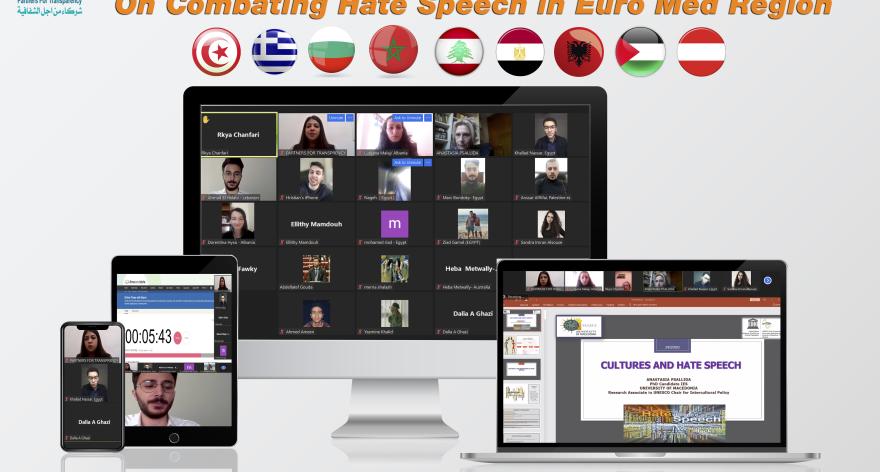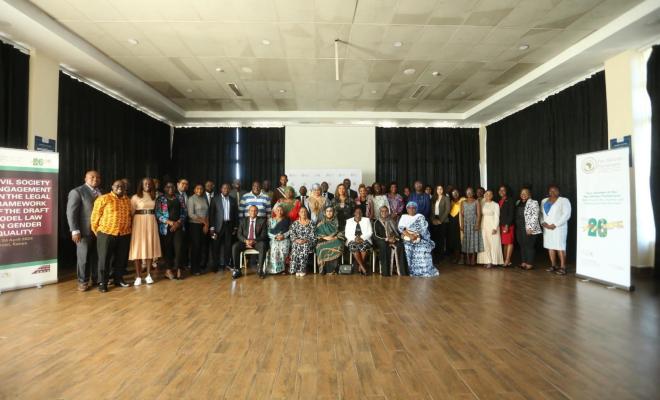
Partners for Transparency, head of the Egyptian Network of the Anna Lindh Foundation for Euro-Mediterranean Dialogue between Cultures, organised a multinational virtual youth debate within the framework of the campaign to combat hate speech in the Euro-Mediterranean region to shed light on cultural differences and the importance of taking them into account when enacting laws and legislation to confront hate speech. The argument of the debate was that “Regulations for combating hate speech should be the same for all countries in the Euro-Mediterranean region.”
A number of 35 youth from all over the Euro-Mediterranean region participated in this debate: Egypt, Greece, Bulgaria, Albania, Tunisia, Morocco, Lebanon, Palestine and Austria, which resulted in an unbiased environment for expression. Accordingly, youth presented their views in proportion to their vision and culture which led to enriching the audience’s vision of cultural differences according to geographical and demographic differences.
After the debate was completed, the audience interacted with the debaters about points raised during the debate, and in turn, all the attendees expressed their admiration for the debate as a whole and for the ideas that were presented in particular. Afterwards, Dr. Anastasia Psallida from Greece, Research Associate in the UNESCO Council for Intercultural Policy for Active Citizenship and Solidarity, presented the United Nations strategy to confront hate speech, which enriched the discussion, presenting youths' view with the expert's perspective.
In this debate, Merna Shalash head of the Egyptian Network of the Anna Lindh Foundation, emphasised that the importance of addressing hate speech is a shared responsibility between individuals, governments, civil society organisations and the media, and stressed the importance of adopting strategies at the national and regional levels to address this phenomenon.
A set of recommendations emerged from the debate, the most important of which is the importance of dialogue as an important tool to combat hate speech in the Euro-Mediterranean region, the importance of concerted efforts at all levels between countries in order to promote dialogue and confront the ideas of the extreme right and extremist groups, and the need to pay attention to and take into account different cultures when designing anti-hate speech regulations.
